24 start with O start with O
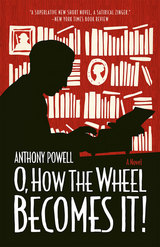
Written at the peak of the late British master’s extraordinary literary career, this novel offers profound insight into the mind of a great artist whose unequaled style, ear for dialogue, and eye for irony will delight devotees and new readers alike.
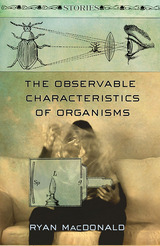
As MacDonald says, “I think what I’m after in the stories as well as in the video work is finding an experiential moment, nothing really stable, something pleasantly unstable, or uncomfortable . . . purposefully pleasant uncomfortable instability with moments of tenderness and definitely humor. Certainly nothing concrete, unless it needs that. A certain fear of and respect for banality. I’m after a good time, which can often turn into a really bad time, but either way, one we’ll remember forever.”
Despite the range of circumstances they reveal, these stories are unified by a brightness of vision, deft observation, and consistently sharp, funny, and unbridled language.
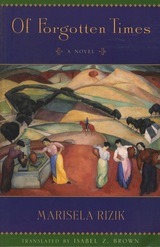
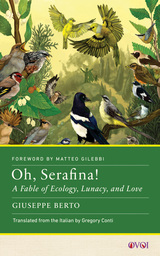
Newly translated into English, Giuseppe Berto’s charming 1973 novel Oh, Serafina! was one of the first works of Italian literature to deal with ecological themes while also questioning the destructive effects of industrial capitalism, the many forms spirituality might take, and the ways our society defines madness. This translation includes a foreword from literary scholar Matteo Gilebbi that provides biographical, historical, and philosophical context for appreciating this whimsical fable of ecology, lunacy, and love.
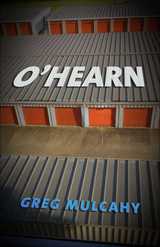
O’Hearn is the story of the story the man tells himself in confused chronology as he struggles to make sense of a world and a landscape where things have stopped making sense.
The laws of causation are absent or profoundly obscured in this explanatory narrative, but then so is all individual motivation. Action seems to end only in a world of winners and losers and occurs solely to reinforce that world by further enriching the winners at the, sometimes willful, expense of the losers.
O’Hearn is funny, contradictory, satiric, heartbreaking—a work unlike anything in our contemporary literature.
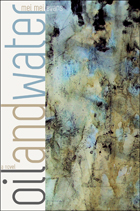
Evans’s compelling story, influenced by her own experiences during the Exxon Valdez oil spill, is a provocative look at the choice that must be made between environmental safety and economic survival. A PEN/Bellwether Prize finalist, it will have readers reconsidering where they draw their own lines.
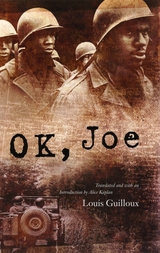
Based on diaries that the author kept during his service as a translator for the U.S. Army in the aftermath of D-Day, OK, Joe follows Louis and the Americans as they negotiate with witnesses, investigate the crimes, and stage the courts-martial. Guilloux has an uncanny ear for the snappy speech of the GIs and a tenderness for the young, unworldly men with whom he spends his days, and, in evocative vignettes and dialogues, he sketches the complex intersection of hope and disillusionment that prevailed after the war. Although the American presence in France has been romanticized in countless books and movies, OK, Joe offers something exceedingly rare: a penetrating French perspective on post-D-Day GI culture, a chronicle of trenchant racism and lost ideals.
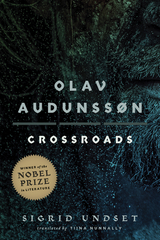
The third volume in the Nobel Prize–winning writer’s epic story of medieval Norway, finely capturing Undset’s fluid, natural style in the first English translation in nearly a century
In the early fourteenth century, Norway is a kingdom in political turmoil, struggling with opposing forces within its own borders and drawn into strife with neighboring Sweden and Denmark. Bloody family vendettas and conflicting loyalties sparked by the irrepressible passion of a boy and his foster sister (also his betrothed) have now set in motion a series of terrible consequences—with a legacy of betrayal, murder, and disgrace that will echo down through the generations. Crossroads, the third of Olav Audunssøn’s four volumes, finds Olav heartbroken by loss and further estranged from his son. To escape his grief, Olav leaves his home estate of Hestviken and agrees to serve as captain on a small merchant ship headed to London. There, separated from everything familiar to him, Olav begins a visionary journey that will send him far into the forest and deep into his soul. Questioning past decisions and future plans, Olav must grapple with his own perceptions of love and guilt, sin and penitence, vengeance and forgiveness.
Set in a time and place where royalty and religion vie for power, and bloodlines and loyalties are law, Crossroads summons a powerful picture of Northern life in medieval times, as the Swedish Academy noted in awarding Sigrid Undset the Nobel Prize in 1928. Conveying both the intimate drama and epic sweep of Olav’s story as grief and guilt drive him to ever more desperate action, Crossroads is a moving and masterly re-creation of a vanished world tainted by bloodshed and haunted by sin and retribution.
As with Kristin Lavransdatter, her earlier medieval epic, Undset immersed herself in the legal, religious, and historical documents of the time while writing Olav Audunssøn to create astoundingly authentic and compelling portraits of Norwegian life in the Middle Ages. And as in her translation of Kristin Lavransdatter, Tiina Nunnally does full justice to Undset’s natural, fluid prose, in a style that delicately and lyrically conveys the natural world, the complex culture, and the fraught emotional territory against which Olav’s story inexorably unfolds.
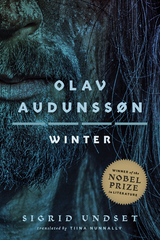
The fourth and final volume in the Nobel Prize–winning writer’s epic of one man’s fateful life in medieval Norway
Set in thirteenth-century Norway, a land racked by political turmoil, bloody family vendettas, and rising tensions between secular powers and an ascendant church, Sigrid Undset’s spellbinding masterpiece now follows the fortunes of Olav Audunssøn to the final, dramatic chapter of his life as it unfolds in Winter, the last volume of the tetralogy. When the orphaned Olav and his foster sister Ingunn became betrothed in their youth, a chain of events was set in motion that eventually led to violence, banishment, and a family separation lasting years. The consequences fracture their marriage and threaten the lineage for generations. Now, at the end of his life, Olav continues to grapple with the guilt of his sins as he watches his children, especially Eirik, make disastrous choices and struggle to find their rightful place in a family haunted by the past.
With its precise details and sweeping vision, Olav Audunssøn summons a powerful picture of Northern life in medieval times, as noted by the Swedish Academy in awarding Undset the Nobel Prize in 1928. Conveying both the intimate drama and the epic proportions of Olav’s story at its conclusion, Winter is a moving and masterly recreation of a vanished world tainted by bloodshed and haunted by sin and retribution—yet one that might still offer a chance for redemption.
As with Kristin Lavransdatter, her earlier medieval epic, Sigrid Undset wrote Olav Audunssøn after immersive research in the legal, religious, and historical writings of the time to create an astoundingly authentic and compelling portrait of Norwegian life in the Middle Ages. And as in her translation of Kristin Lavransdatter, Tiina Nunnally does full justice to Undset’s natural, fluid prose—in a style by turns plainspoken and delicately lyrical—to convey the natural world, the complex culture, and the fraught emotional territory against which Olav’s story inexorably unfolds.

An Old Carriage with Curtains is the third and final book in a masterful trilogy of novels encompassing the history of the people of the Palestinian village of Zakariyya. The novels trace the wandering trajectories and inner lives of characters connected to this village across decades, as well as the vicissitudes of historical change and displacement in the land. Through the return of a middle-aged man to the site of an ancient monastery in the hills near Jericho that he once visited as a boy, the incredibly vivid and surprising stories of Hind, a stage actress and brilliant storyteller, the stories of tortuous routes of checkpoints and bureaucratic blockages, and decades of Occupation, Zaqtan creates a narrative of personal reckoning and reflection.
The vectors of memory and historical reflection interweave in this dreamlike narrative, which delivers a singularly powerful depiction of subjective and collective experience in the face of devastating and sweeping historical change.
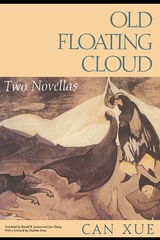
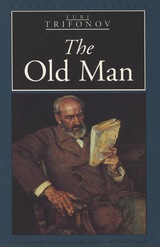
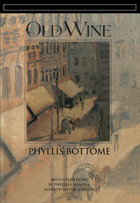
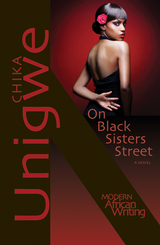
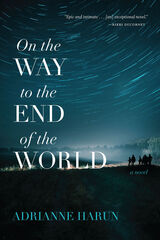
As the Cuban Missile Crisis eases, President Kennedy is casting around for a demonstration of American prowess when one of his Cabinet unearths an old mandate that US Marines be fit enough to walk fifty miles in twenty hours. Perfect! Kennedy decides to throw down the gauntlet to “today’s Marines,” but before he knows it, he’s sparked a wild fad. The entire country has answered the call, it seems, and for a few crazed winter weeks, masses of Americans will embark on their own arduous Big Walks—the “JFK 50-Milers.”
Yet in tiny Humtown—an isolated mill town in the Pacific Northwest—not everyone who shows up for a hastily organized Big Walk is motivated by patriotism. Not Helen Hubka, an inveterate gossip; not the suicidal Caroline, who months earlier lost her beloved husband during the Storm of the Century. Not ex-soldier/fisherman Jaspar Goode, nor the unknown man in their midst, a collared priest who seems to shift identities at will. Certainly not Avis, a battered teenager running from her terrifying brother . . . with a stolen town treasure. And when the walkers stumble upon the abandoned car of a missing young mother, they rekindle a mystery that soon reverberates among them, exposing hidden truths, talents, and alliances.
Splendidly imagined, with prose that sings on the page, On the Way to the End of the World is an adventure story riven with secrets, a national fairy tale twisted into a whodunit.
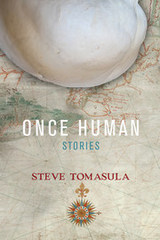
A manga artist who is afraid that she herself is slipping into a cartoon version of life, a lab technician who makes art with the cloning technology she uses at work, a sociologist hunting for the gene that makes some people want to take risks—these are some of the characters that populate the stories in Once Human. Exploring the spaces where life is shaped by science and the technologies we bring into being, Steve Tomasula’s characters often find that the harder they look at the world, the less they can say. The map that emerges from these stories charts the territory of human longing and the failure of poetry, science, and technology to explain the “why” of the world, if not its “how.”
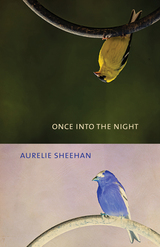
Stories that explore the potent and captivating boundaries between the real and the imaginary
Aurelie Sheehan’s Once into the Night is a collection of 57 brief stories—a fictional autobiography made of assumed identities and what-ifs. What is the difference between fiction and a lie? These stories dwell in a netherworld between memory and the imagination, exploring the nature of truthtelling.
Here the inner life is granted pride of place with authenticity found in misremembered childhood notebooks, invisible tattoos, and the love life of icemen. Radical in its conception of story, this collection blurs the line between fiction, poetry, and essay, reconceiving contemporary autofiction in its own witty, poignant vernacular. The stories intersect with and deviate from a “provable” life—a twin distinction that becomes the source of their power.
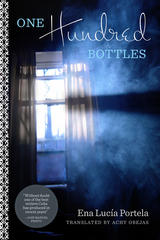
One Hundred Bottles, with its intersecting characters and unresolved whodunits, can be read as a murder mystery. But it's really a survivor's story. In a voice that blends gossip, storytelling, and literature, Z—the vivacious heroine of Portela's award-winning novel—relates her rum-soaked encounters with the lesbian underground, the characters carving up her home, and the terrifying-but-irresistible Moisés. As entertaining as any detective drama, One Hundred Bottles is ultimately made real by very rough love, intense friendship, and something small that decides to live.
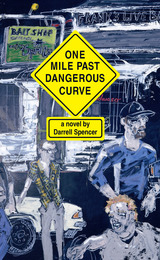
"This book aims to be about the best of us as it shows us at our least. Thank goodness for Darrell Spencer, the only writer in America to be trusted on the subjects of faith, love, weal and woe."
---Lee K. Abbott
" . . . absolutely dire and dear, his best book, a novel about American life right now. . . . this book is accurate, acerbic, and heartfelt at once."
---Ron Carlson
Praise for Darrell Spencer:
"Mr. Spencer's writing crackles with freshness and lucidity, featuring characters who slide into one another in random encounters and relationships."
---New York Times Book Review
"[Spencer] possesses a remarkable ear for the cadence of everyday speech."
---Michael Chabon
From the acclaimed author of Caution: Men in Trees and A Woman Packing a Pistol comes a tale of kinship, love, and lawlessness.
One Mile Past Dangerous Curve is the story of the Dancers---a family on the verge of collapse. Glen Dancer has come to Ohio to set up another in a series of Snapper franchises. But in the midst of construction, Glen finds himself fighting a painful and futile battle with cancer.
His son Eddie, recently divorced, moves from Las Vegas to help. A sign painter by trade, Eddie finds only intermittent work in town until the day a mysterious and wealthy businessman commissions a series of twenty road signs, each different, all featuring odd, cryptic messages. It is on a back-country road, where Eddie has gone to assemble one of the signs, that some previously vague threats become concrete.
Though Eddie doesn't know it, the neighboring woods hide a secret, a secret that a gun-toting rural gang wants to keep at any cost.
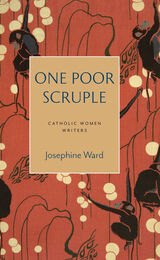
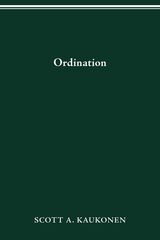
“If my mother were to tell the story . . .” So begins the title piece in this debut collection of short fiction, eight stories that explore the gap between the stories we tell ourselves and the stories we have lived. In “Punitive Damages,” a father, the beneficiary of a huge financial settlement in compensation for his son’s death, must confront the truth of the life that the son’s death has provided. In “Punnett’s Squares,” winner of the Chicago Tribune’s Nelson Algren Award, an adopted son seeks to prove, against all evidence to the contrary, that his adoptive father is in fact his biological father. In “Induction Ceremony,” a small-town basketball hero returns to his hometown no longer a man but now a woman, and his onetime teammate-and-friend must reconsider who they were and who they are now. In the pair of pieces that bookend the collection, “Ordination” and “Be a Missionary,” a Baptist preacher’s son must reconcile the distance between the evidence of things seen and the evidence of things unseen.
These are men and boys who like to see themselves as worthy of the titles of father, son, husband, lover, and friend, but who must fight their own instincts and desires to claim such honors. These are boys and men for whom questions of identity—biological, cultural, sexual, religious, moral—are unavoidable, men and boys always seeking to be who they want to be, always aware of who they are.
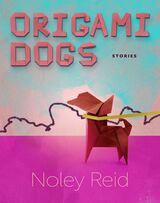
Noley Reid’s fourth book, Origami Dogs, is a testament to her mastery of the form. Here, dogs rove the grounds of their companions’ emotions. The creatures in this short story collection often act subtly, serving as witnesses without language, exacerbating tension and providing relief to the human characters. Sometimes they are central to the stories’ plots, such as in the lead story, “Origami Dogs,” which focuses on Iris Garr, a dog breeder’s teenage daughter, as she begins noticing odd birth defects in new litters and realizes she must confront her mother, whom she loves yet cannot help but resent. In some stories, teens struggle toward womanhood or wrestle with sexuality and queerness, confronting parents who are unable to provide the care or support they need. In other stories, Reid’s characters are adults striving to be better spouses, parents, or both, and are often grappling with life-changing events—like a new disability or the loss of a child. Despite the gravitas of these tragedies, with Reid’s touch, they feel alive, present, and painfully close. Reid brings us to her characters in the fierce damp aftermath of calamity and asks us to dwell with them until new possibilities arrive.
At these tipping points, the characters of Origami Dogs stand ready with their dogs (or memories of them), to take the next step. By turns tender, moving, and devastating, this story collection is a celebration of the bond of devotion possible between humans and dogs, and it presents an intimate rendering of the lives we share.
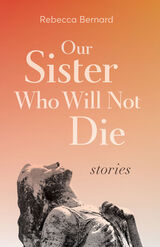
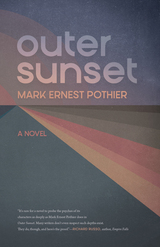
READERS
Browse our collection.
PUBLISHERS
See BiblioVault's publisher services.
STUDENT SERVICES
Files for college accessibility offices.
UChicago Accessibility Resources
home | accessibility | search | about | contact us
BiblioVault ® 2001 - 2024
The University of Chicago Press









